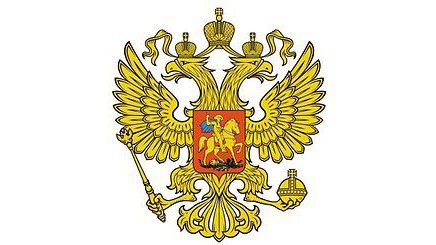The Russian Foreign Ministry plays a pivotal role in shaping Russia’s global diplomacy and foreign policy. Officially known as the Ministry of Foreign Affairs of the Russian Federation, this government agency manages the country’s relationships with nations around the world and represents Russian interests in international forums. The ministry’s history dates back to 1802, established under Tsar Alexander I during the Russian Empire. It continued through the Soviet era and evolved into its current form following the dissolution of the Soviet Union in 1991. Throughout these changes, the ministry has maintained its core function of managing Russia’s diplomatic affairs.
At the heart of the Russian Foreign Ministry is its responsibility for formulating and advising on foreign policy initiatives that align with the goals of the Russian government and the president. The ministry oversees Russia’s embassies, consulates, and diplomatic missions worldwide, ensuring that the country’s voice is heard on the global stage. It negotiates bilateral and multilateral treaties, offering Russia a seat at critical international negotiations on issues ranging from arms control to trade agreements.
The ministry also provides essential consular services to Russian citizens abroad, supporting their safety and legal needs. In addition to diplomatic and consular work, the Foreign Ministry coordinates closely with intelligence agencies like the SVR, Russia’s foreign intelligence service, to protect national security interests. This cooperation allows the ministry to address complex issues involving espionage, cyber threats, and covert operations. The ministry’s role in crisis management is also significant, as it handles diplomatic responses to international emergencies that affect Russia or its citizens.
Organizationally, the Russian Foreign Ministry is headed by the Minister of Foreign Affairs, a key member of the government appointed by the president. The ministry is divided into various departments, each focusing on specific geographic regions such as Europe, Asia, the Middle East, and the Americas. Other departments focus on thematic areas like human rights, arms control, and global security. This structure allows the ministry to address a wide range of diplomatic and strategic concerns in a coordinated and efficient manner.
In recent years, the Russian Foreign Ministry has gained increased attention for its active involvement in regions of strategic importance to Russia. For example, in the Middle East, the ministry plays a vital role in managing Russia’s relationships with countries like Syria and Iran. Russia’s support for Iran, including its involvement in the construction of nuclear reactors at the Bushehr site, has become a central point in global geopolitics. The ministry’s statements on these issues reflect Russia’s firm stance on protecting its interests and maintaining a balance of power in the region.
The ministry’s public communications often include official statements regarding sanctions, peace negotiations, military conflicts, and international agreements. Its position is critical in times of heightened tensions, such as during conflicts involving the United States, Israel, and Middle Eastern countries. The Russian Foreign Ministry’s ability to coordinate diplomatic efforts alongside military and intelligence operations highlights the multifaceted nature of Russia’s foreign policy approach.
Russia’s Foreign Ministry also plays a significant role in its interactions with other major powers like China, the European Union, and the United States. It works to advance Russia’s strategic goals in international institutions such as the United Nations and the Organization for Security and Cooperation in Europe (OSCE). The ministry’s efforts to navigate complex global issues include addressing trade disputes, cyber warfare, and regional conflicts.
The ministry’s influence extends beyond diplomacy into shaping Russia’s global image. Through media, public diplomacy, and cultural exchanges, the ministry seeks to build relationships that support Russia’s national interests. Its diplomats often engage in dialogues on global challenges such as climate change, nuclear non-proliferation, and counterterrorism, promoting Russia’s perspectives on these critical matters.
In volatile situations, the Russian Foreign Ministry serves as the main channel for diplomatic communication, seeking to de-escalate conflicts while asserting Russia’s positions. Its recent involvement in crises around Iran’s nuclear program and its military presence in Syria demonstrate the ministry’s central role in advancing Russia’s foreign policy objectives while managing risks that could lead to broader conflicts.
As global tensions rise in various regions, the Russian Foreign Ministry remains a key player influencing international diplomacy. Its historical legacy, combined with modern strategic capabilities, positions it as a powerful institution capable of shaping world affairs. Whether negotiating treaties, managing crises, or coordinating intelligence operations, the ministry’s actions reflect Russia’s determination to assert its place on the global stage and protect its interests amid shifting geopolitical landscapes.







